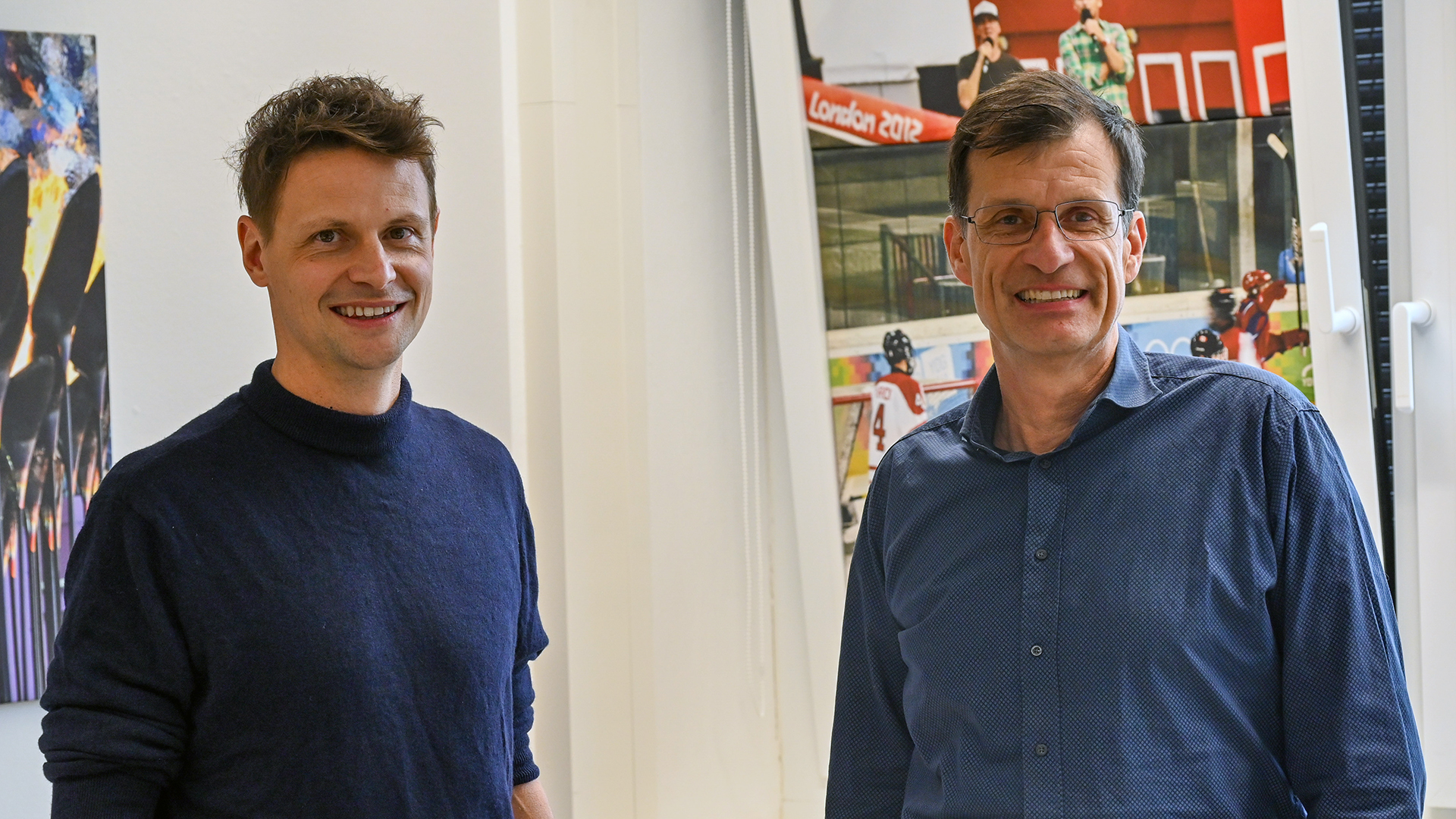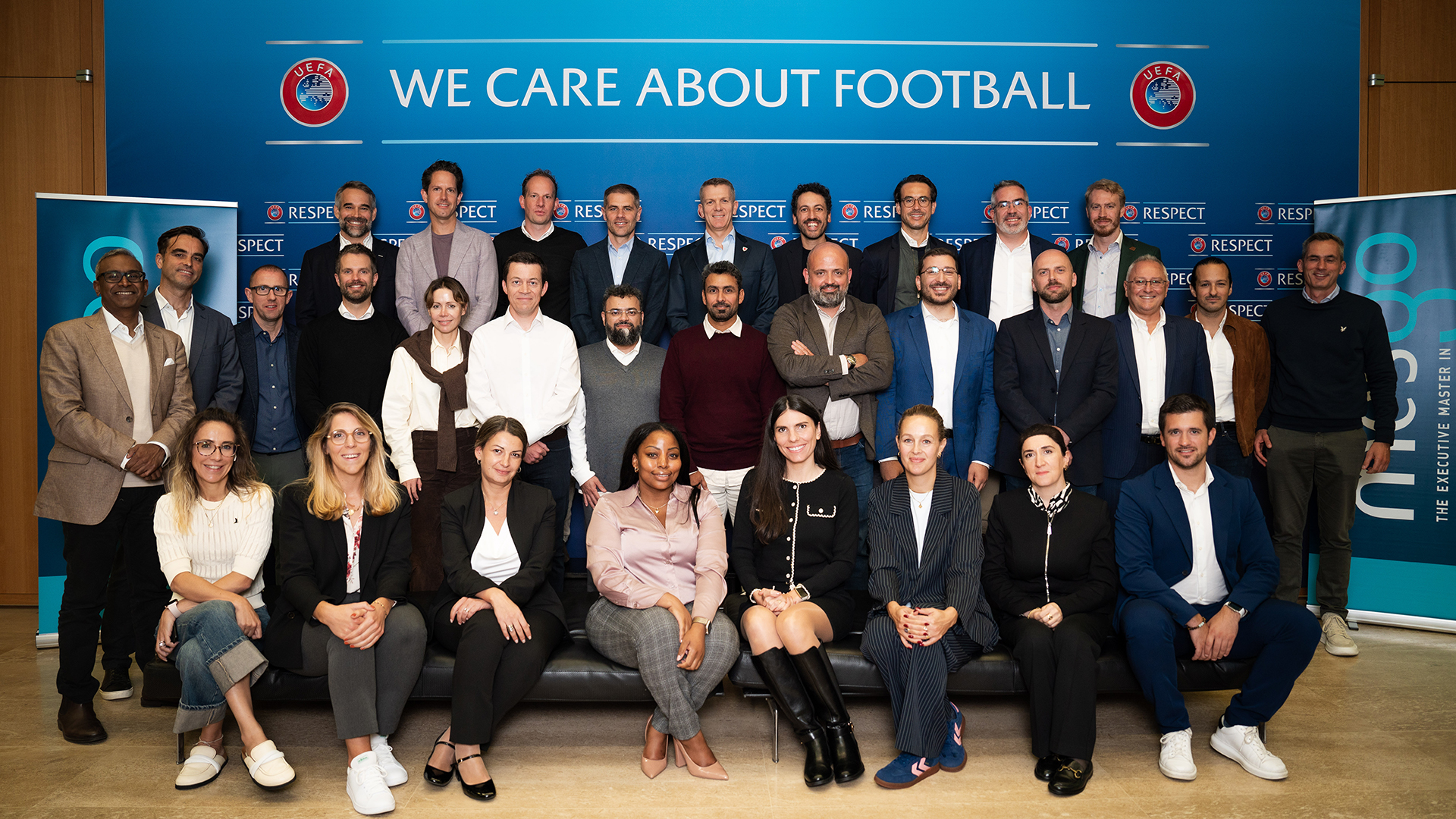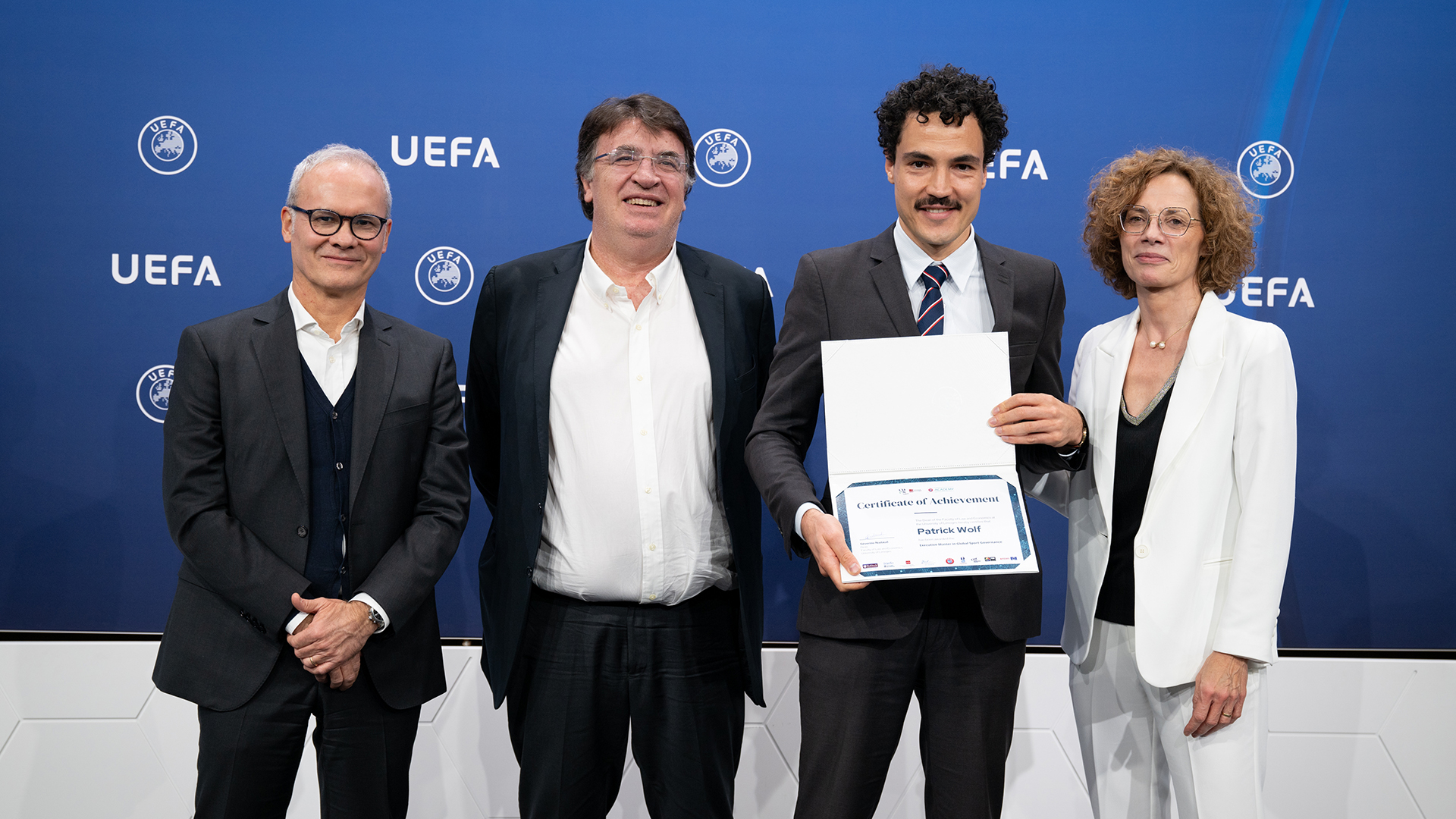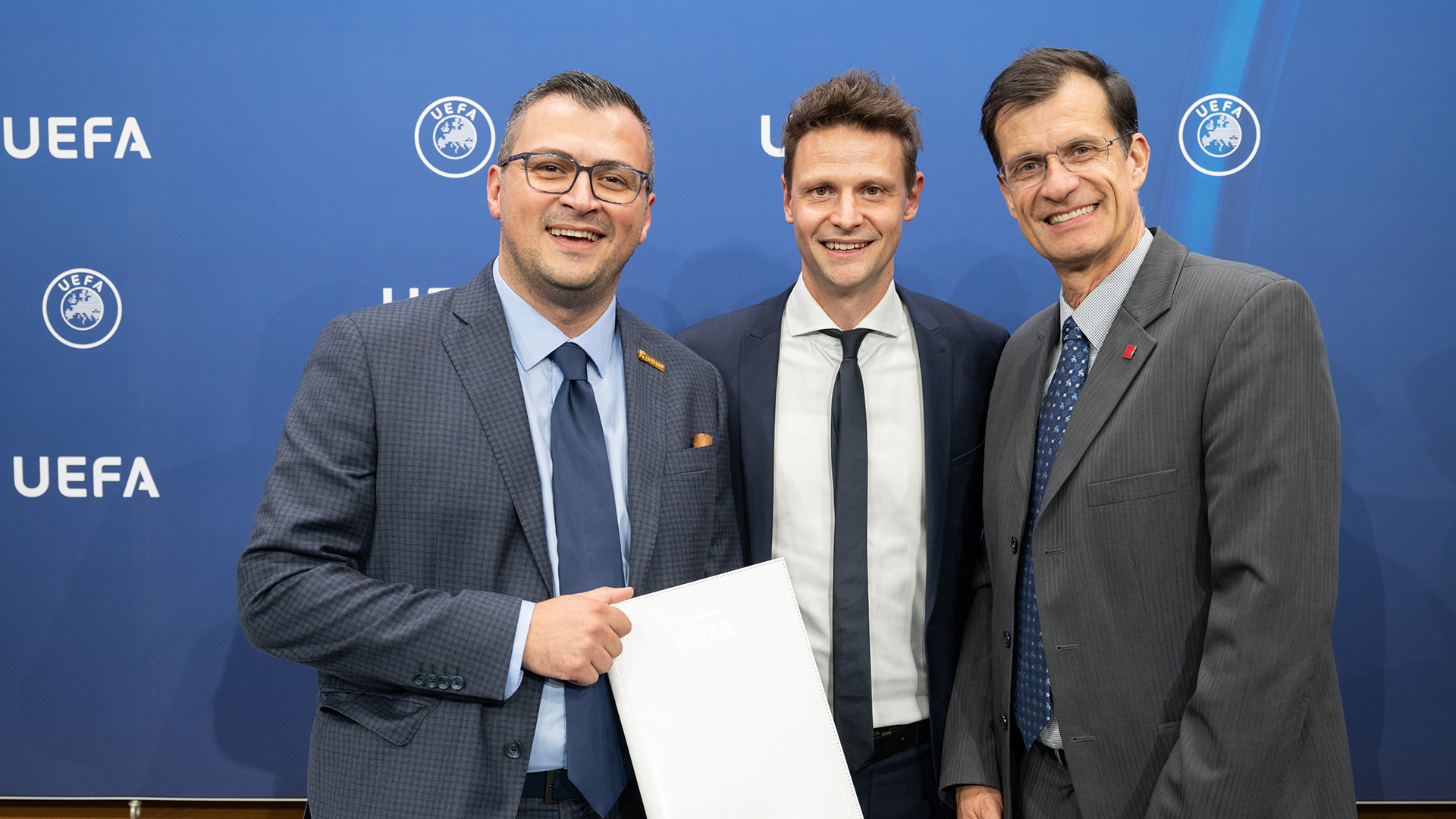1 March 2025
MESGO is truly international: the Executive Master in Global Sport Governance program is held in venues throughout Europe, in the USA, and in Singapore. As an academic founding member of MESGO, Johannes Gutenberg University Mainz organizes two of the nine worldwide sessions. One of these, the session on Ethics and Integrity, takes place in Mainz and Frankfurt am Main.
"The MESGO participants do like Mainz a lot," says Holger Preuß, Professor of Economics, Sociology, and History of Sports at the Institute of Sports Science of Johannes Gutenberg University Mainz (JGU). Together with Dr. Mathias Schubert, he coordinates the international Executive Master in Global Sport Governance at JGU. The two sports scientists also represent Mainz University in the management and academic advisory board of this renowned qualification program for experienced sports managers and executives. But what is the charm of Mainz according to those attending the MESGO program? It is of course the curriculum of the Ethics and Integrity session held here at JGU – supported very much by the location itself. Mainz is a historical and vibrant university city of short distances, and it is also home to the Mainz 05 soccer club that serves as a venue for the MESGO session. Furthermore, Frankfurt am Main with its DFB Campus, the home of the German Football Association, is just around the corner. In March 2025, the Ethics and Integrity session will again take place in Mainz.

During the one-week event, MESGO brings a unique multitude of sports managers to Mainz as the Master's program is not aimed at young bachelor's graduates, but at experienced leaders and decision-makers in national and international sport. They want to advance their careers with this prestigious qualification. The careers of MESGO graduates are proof of the program's success: alumni work in executive positions in numerous national sports associations and the leading international soccer organizations FIFA and UEFA. Others play important roles in the corresponding institutions for basketball, ice hockey, handball, and motor sport – as well as in sports policy.
Patrick M. Wolf from Germany is a 2024 MESGO graduate. He is Head of International Relations of the German Football Association (DFB) and emphasizes the practical orientation of the program: "MESGO's international approach turns up in many ways in my everyday professional life. The Master's program is an excellent preparation for the complex challenges of global sports governance." Participants also benefit from the MESGO network and personal contacts. "The program provides the basis for close and long-term connections," emphasizes Patrick Wolf. He took advantage of the opportunity to build strong relationships with colleagues from other national soccer associations as well as FIFA and UEFA. "My colleagues from the MESGO program are now in positions similar to mine, and we have become trusted contacts in matters of international sports governance."
"Combining academic theory with authentic problem-solving strategies"
"MESGO is an outstanding program by international standards," says Dr. Mathias Schubert. The open framework of the Master's program is evident in two ways. For a start, there is no focus on a specific type of sport, but rather topics and examples from a wide range of different disciplines are covered. This is also reflected in the diverse composition of the five institutional partners in the MESGO network. In addition, the program has a consistent international focus. The new cohort, which started in the fall of 2024, includes participants from Brazil, the Gulf States, India, and the USA.

Another MESGO graduate, Sarah Solémalé, emphasizes the advantages of the curriculum. The French lawyer completed the two-year program in 2022 and, after working for FIFA for a longer period, was appointed to a senior position at the European Club Association (ECA) in 2024. "The global approach of this Master's program is reflected in the fact that the sessions are held in different countries. This allows the participants to discover the various cultural contexts and regulatory environments within sport," notes the sports manager. And there is another major benefit from her point of view: "The MESGO program prepares participants with an excellent training to deal with existing and future challenges in the sports ecosystem – by combining academic theory with authentic problem-solving strategies and direct exchange with leading sports organizations."
JGU is a founding member of MESGO and has overseen the two sessions on Ethics and Integrity and on the Future of Sport since the launch of the program in 2010. For Preuß and Schubert, ethics is a key component of sport management. "Sport is a reflection of society. Therefore, management decisions in sport must have an ethical basis," emphasizes Preuß. The sports economist is enthusiastic about the success of the Master's program. He was already involved in the establishment of the MESGO project from 2007 onwards.
The participants' assessment is similarly positive. Patrick Wolf, for instance, remarks: "The ethics module is an essential component for professional routine in sports management, as ethics and good governance in sport are coming increasingly into the spotlight. The examples studied during the course represent real-life situations that I have already had to deal with or will have to come to grips with in the near future." As Wolf summarizes, it is thus no surprise that many of the participants consider the session in Mainz to be a personal highlight of the MESGO program.
The two-year MESGO Master's degree program is organized by five universities acting as academic partners and five of the leading sport associations are institutional partners. The University of Limoges in France is lead university and joined by Johannes Gutenberg University Mainz in Germany, the University of London in the UK, the University of Barcelona in Spain, and the University of Lausanne in Switzerland. The joint degree program was initiated by the Centre de Droit et d'Economie du Sport (CDES) in Limoges and the Union of European Football Associations (UEFA) in the early 2000s. Other institutional partners include the International Ice Hockey Federation (IIHF), the European Handball Federation (EHF), the International Basketball Federation (FIBA), and the Enlarged Partial Agreement on Sport (EPAS) of the Council of Europe that provides a platform for intergovernmental cooperation in sport.

The extra-occupational Master's degree program with its nine sessions is demanding. These modules are hosted at various sites throughout the world. Locations include Mainz and Frankfurt, Lausanne, Paris, Brussels, Barcelona, London, New York, Silicon Valley, and Singapore. In the city-state in Southeast Asia, the Future of Sport session is held, for which the academic material is also supplied by JGU.
In addition to these on-site meetings, the program is supplemented by online seminars. Participants are required to take a final exam and complete a Master's thesis. There is a high level of practical relevance throughout the course, and part of the examination involves drafting and presenting solutions to real-life scenarios. "Applicants must have at least five years of management experience to qualify for this challenging program," states Dr. Mathias Schubert. According to Professor Holger Preuß, the MESGO vision is that the degree is not just a one-time qualification but rather becomes part of the participants' lifelong learning cycle. "During the program, the group gets an insight into the latest developments from up to 150 highly distinguished speakers," says Preuß. "However, every sport executive – whether MESGO graduate or not – should follow his or her own principle of thinking outside the box and remaining open to acquiring new knowledge and skills. The extensive network of alumni from currently 45 countries can play an important role here.
"Developing a strong moral compass"
What is the specific relevance of the Ethics and Integrity session at JGU to the everyday work of sport managers? Sarah Solémalé has an answer: "In our sector, decisions have to be made taking into account different stakeholders, financial aspects, and public supervisory bodies. A thorough understanding of ethical principles is essential. The MESGO session enables participants to better navigate complex issues such as good governance, transparency, and questions of fairness and inclusion. Focusing on real ethical challenges in sport helps future sport leaders develop a strong moral compass. As a result, they are able to take a moral stance in their decision-making process, protect the integrity of the sport they represent, and even promote positive social impact." The actual implementation of these skills will, of course, always depend on the individual, the lawyer concedes.

For Mainz University, the active and strong involvement in MESGO brings significant visibility in the world of international sports science and recognition by sport management teams. According to Holger Preuß and Mathias Schubert, this has an advantage also for learning and teaching in Mainz. "Due to our networking in MESGO, our teaching and learning content is even closer to the most recent developments in global sport," emphasizes Schubert. And the contacts that have grown from MESGO are extremely valuable both for research and for finding internships. At the same time, the MESGO alumni network is again and again reaching out to the researchers with questions. "It's an exchange at eye level. And this is what's so fantastic and enjoyable about the program," concludes Professor Holger Preuß.
Text / Translation: Peter Thomas / JGU
